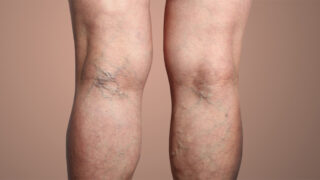October marks Breast Cancer Awareness Month in Singapore. We speak to DR GEORGETTE CHAN, a breast surgeon in Singapore, about the four key things we should all know about this condition.
#1 Breast cancer awareness – early detection and screening
Surviving breast cancer starts with staying vigilant and self-examining your breasts regularly. You know your body best, so you’re the first to notice if something changes. “Picking up cancer at an early stage saves lives because it can be treated more easily before it becomes large or spreads,” says Dr Chan.
According to Dr Chan, a mammogram is the best screening tool for breast cancer. This is an x-ray of the breast that can detect tumours that are too small to be felt even in a clinical examination. “Current data shows that regular mammograms result in a 30 percent reduction in breast cancer mortality in women aged under 50 years of age.” The Health Promotion Board in Singapore recommends screening intervals of once a year for women aged 40 to 50, and once every two years for those aged over 50.

#2 Symptoms of breast cancer
These may include breast lumps; thickening in the breast or armpit; a change in size, shape or feel of your breast; skin changes such as puckering, dimpling, a rash or redness of the skin; or nipple discharge. Dr Chan reassures, “while lumps can be an important symptom of breast cancer, don’t panic if you discover one. They are common and most of the time benign. Normal breast tissue can become more prominent before a period.” But, it’s best to book in for a GP check-up to be sure.
#3 Understanding risk factors
Breast cancer risk is influenced by a combination of genetic, lifestyle and environmental factors. “Hormone replacement therapy (HRT) and certain contraceptives, which increase hormone levels, have been linked to a slightly elevated risk of breast cancer,” says Dr Chan. It’s good to know that this risk goes away once you stop taking the medication.
Overweight and obese women – with a BMI of 23 or above – have a higher risk of getting breast cancer compared to women who maintain a normal weight. “This is especially important after menopause, due to higher oestrogen levels in the body, which can promote the development of certain types of breast cancer.” Alcohol consumption and smoking are also associated with a higher risk.
Interestingly, only five to ten percent of all breast cancers are hereditary or caused by abnormal genes passed from parent to child. “This happens when BRCA1/2 and PALB2, typically helpful tumour suppressor genes, mutate, increasing the risk for patients to develop breast or ovarian cancer by five times,” says Dr Chan. A large proportion of women who are diagnosed with breast cancer have neither a positive family history nor any genetic mutation.
#4 Treatment options
Dr Chan takes a personalised and multidisciplinary approach as a breast surgeon in Singapore. “Treatment is highly individualised depending on the type, stage and genetic characteristics of the tumour, the hormone receptor status as well as the patient’s overall health and preferences.” Options can range from surgery and radiotherapy, to hormonal therapies, immunotherapy and chemotherapy.
“For very small tumours, surgery is often the first line of treatment, while for more advanced stages, a combination of therapies may improve outcomes and potentially allow for breast-conserving surgery.” Dr Chan also highlights the advancements in targeted therapies that have considerably improved survival rates, especially for aggressive types of breast cancer.
About this breast surgeon in Singapore
Dr Chan is a female general surgeon and breast surgical oncologist. She manages a full range of breast concerns including cancer and is focused on providing the best possible oncological and cosmetic outcomes for her patients.
Dr Georgette Chan
#11-09 Mount Elizabeth Medical Centre, 3 Mount Elizabeth
6836 5167 | georgettechan.com.sg
If your found this feature on a breast surgeon in Singapore for Breast Cancer Awareness Month useful, check out our Health & Fitness section for more informative articles.
This article first appeared in the October 2024 edition of Expat Living. You can purchase the latest issue or subscribe so you never miss a copy!
To make the most of living in Singapore, read our latest City Guide here for free!






